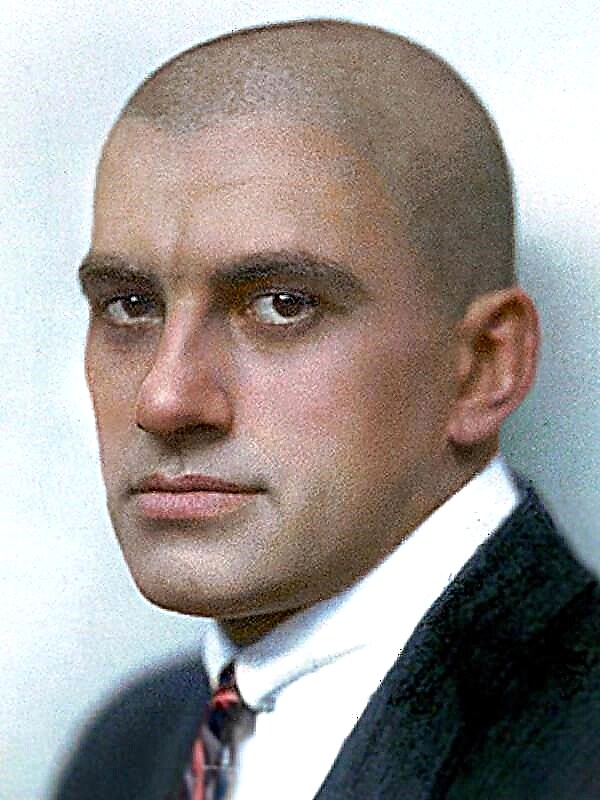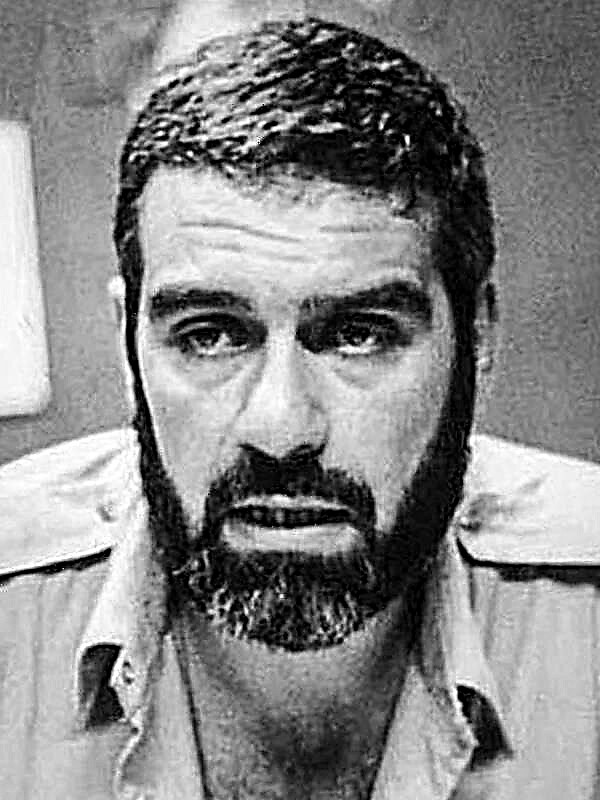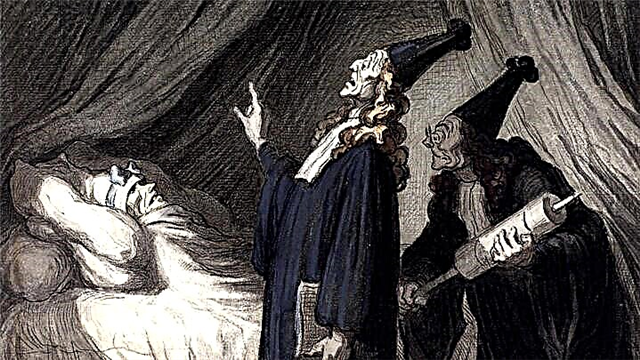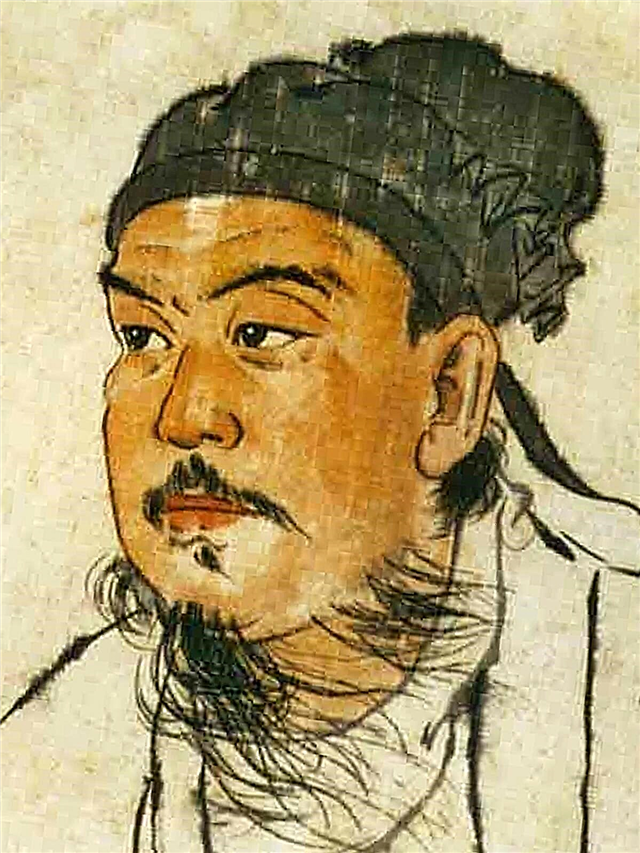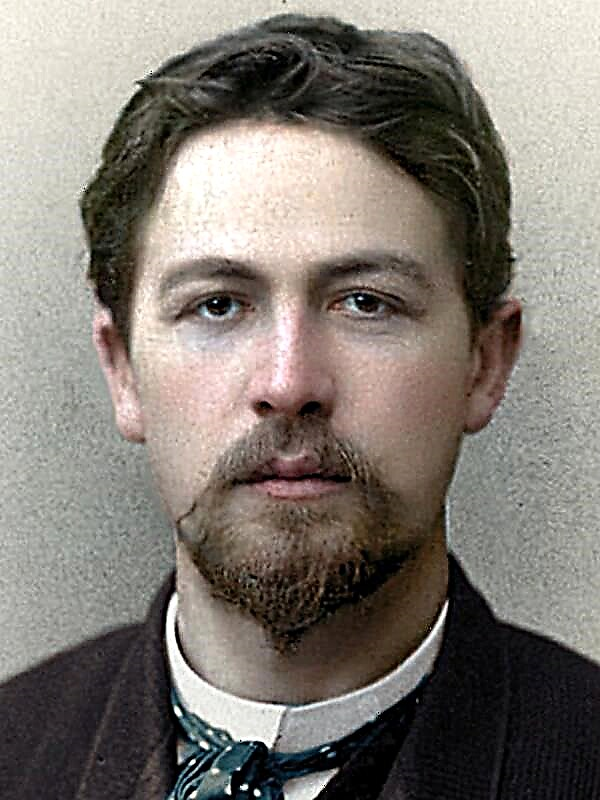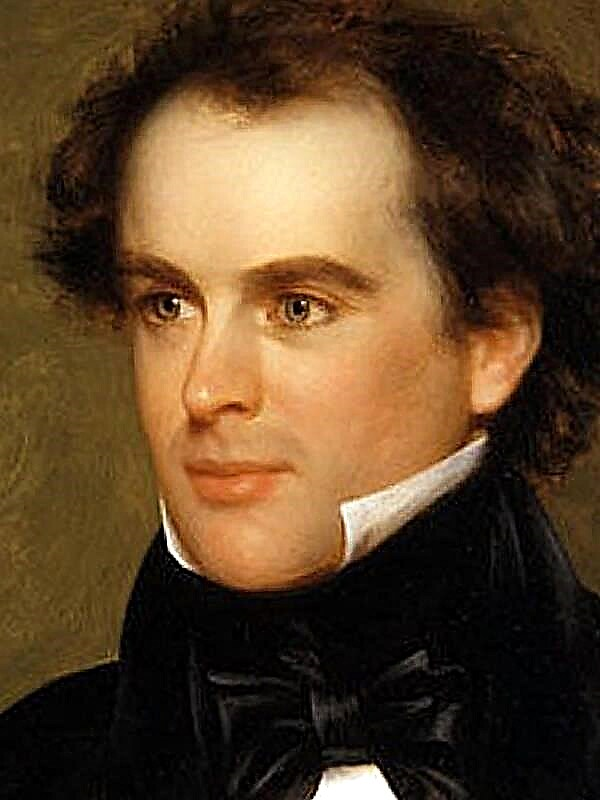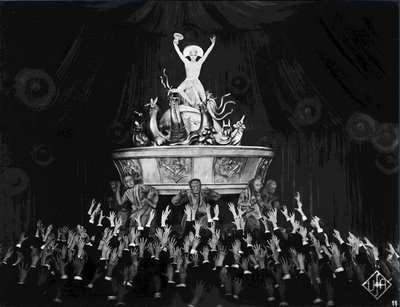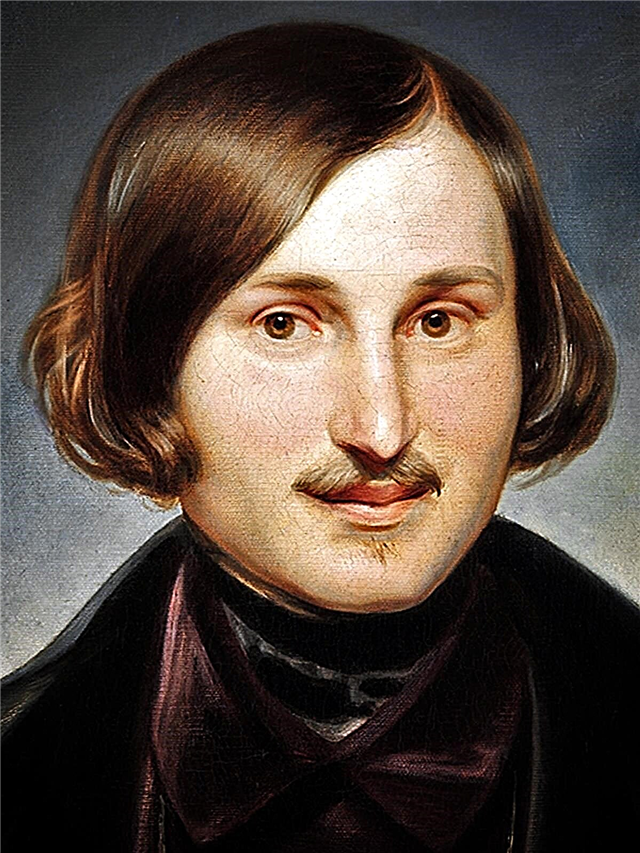: Wandering with a gun and a dog, the narrator writes down small stories about the mores and life of the surrounding peasants and their neighboring landowners.
The narrative is conducted on behalf of the landowner and an avid hunter, a middle-aged man.
Khor and Kalynich
A guest at the Kaluga landowner, the narrator met his two peasants - Khorem and Kalinich. The ferret was a rich man "on his own mind", did not want to bathe, had seven giant sons and got along with the master, whom he saw through and through. Kalinych was a cheerful and gentle man, kept bees, engaged in quackery and reverence for the master.
The narrator was interested to watch the touching friendship of practical rationalist Khoria and romantic idealist Kalinych.
Yermolai and the mill
The narrator went hunting with Yermolai, the serf of his neighbor landowner. Yermolai was a carefree loafer, unfit for any job. He always fell into alterations, from which he always came out unscathed. With his wife, who lived in a dilapidated hut, Yermolai was rude and cruel.
The hunters spent the night at the mill. Waking up at night, the narrator heard Yermolai calling the beautiful mill-maker Arina to live with him and promising to expel his wife. Once Arina was a maid of the count's wife. Upon learning that the girl was pregnant by a footman, the countess did not allow her to marry and sent her to a distant village, and gave the footman to the soldiers. Arina lost her child and married the miller.
Raspberry water
Hunting, the narrator stopped at the spring Raspberry water. Two old men were fishing nearby. One was Styopushka, a man with a dark past, taciturn and troublesome. He worked for food with a local gardener.
Another old man, nicknamed Fog, was a freedman and lived with the innkeeper. Previously, he served as a lackey at the Count, known for his feasts, who went broke and died in poverty.
The narrator started a conversation with the elderly. Fog began to recall the lovers of his count. Then an upset man Vlas approached the spring. His adult son died, and he asked the master to reduce his exorbitant quitrent, but he was angry and kicked the peasant out. All four had a little chat and parted.
County doctor
Returning from the hunt, the narrator fell ill, stopped at a county hotel and sent for a doctor. He told him a story about Alexander, the daughter of a poor widow-landowner. The girl was terminally ill. The doctor lived in the landowner's house for many days, trying to cure Alexandra, and became attached to her, who fell in love with him.
Alexandra confessed love to the doctor, and he could not resist. They spent three nights together, after which the girl died. Time passed, and the doctor married a lazy and evil merchant's daughter with a large dowry.
My neighbor Radilov
The narrator was hunting in a linden garden that belonged to his neighbor Radilov. He invited him to dinner and introduced him to the old mother and a very beautiful girl Ola. The narrator noted that Radilov — uncommunicative, but kind — was gripped by one feeling, and in Ola, calm and happy, there was no mannerism of a district girl. She was the sister of Radilov's deceased wife, and when he remembered the deceased, Olya got up and went into the garden.
A week later, the narrator found out that Radilov had abandoned his old mother and left with Olya. The narrator realized that she was jealous of Radilov to her sister. He did not hear about the neighbor anymore.
Ovsyannikov
At Radilov, the narrator met Ovsyannikov’s odnodvorets, who, like his cleverness, laziness, and tenacity, was like a boyar. Together with his wife, he helped the poor and resolved disputes.
Ovsyannikov invited the narrator to dinner. They talked for a long time about the old days and remembered mutual acquaintances.Over tea, Ovsyannikov finally agreed to forgive the non-traumatic nephew of his wife, who left the service, composed requests and slander for the peasants, believing that he "stands for the truth."
Lgov
The narrator and Yermolai hunted ducks under the large village of Lgov. Looking for a boat, they met a freed Vladimir, an educated man who served as a valet in his youth. He volunteered to help.
Yermolai took the boat from a man nicknamed Suchok, who served as a fisherman on the nearby lake. His lady, an old maid, forbade him to marry. Since then, Suchok has changed many works and five owners.
During the hunt, Vladimir had to scoop up water from an old boat, but he got carried away and forgot about his duties. The boat rolled over. Only in the evening, Yermolai managed to get the narrator out of the swampy pond.
Bezhin meadow
During the hunt, the narrator got lost and fell into a meadow, which the locals called Bezhin. There the boys grazed horses, and the narrator asked to spend the night at their fire. Pretending to be asleep, the narrator listened until dawn, as the children tell stories about brownies, gobbies and other evil spirits.
Kasyan with Beautiful swords
On the way from the hunt, the narrator broke the axle of the cart. To fix it, he reached the Yudinye Settlements, where he met the dwarf Kasyan, who had moved here with the Beautiful Swords.
Having repaired the axis, the narrator decided to hunt for the wood grouse. Kasyan, who was attached to him, believed that it was a sin to kill forest creatures and firmly believed that he could take away the game from the hunter. The dwarf hunted nightingales, was literate and treated people with herbs. Under the guise of a holy fool, he went around the whole of Russia. From the coachman, the narrator learned that the childless Kasyan is raising an orphan girl.
Burmister
The narrator's neighbor, a retired young officer, was educated, prudent, and punished his peasants for their own good, but the narrator did not like to be with him. Once he had to spend the night with a neighbor. In the morning, he undertook to take the narrator to his village, where a certain Sofron served as a bermister.
That day the narrator had to give up hunting. The neighbor fully trusted his burmistra, bought him land and refused to listen to the complaint of the peasant whom Sofron took into bondage, exiling all his sons to the soldiers. Later, the narrator found out that Sofron had taken possession of the whole village and was robbing his neighbor.
Office
While hunting, the narrator fell into the cold rain and found shelter in the office of a large village owned by the landowner Losnyakova. Thinking that the hunter was sleeping, the clerk Eremeich freely decided his affairs. The narrator found out that all the landowner's transactions go through the office, and Yeremeich takes a bribe from merchants and men.
To avenge the paramedic for unsuccessful treatment, Yeremeich slandered his bride, and the landowner forbade her to marry. Later, the narrator found out that Losnyakova did not choose between the paramedic and Yeremeich, but simply exiled the girl.
Biryuk
The narrator fell under a thunderstorm and took refuge in a forester's house, nicknamed Biryuk. He knew that the forester, strong, agile and incorruptible, did not allow even a bundle of brushwood to be taken out of the forest. Biryuk lived poorly. His wife fled with a passing tradesman, and he alone raised two children.
In the presence of the narrator, the forester caught a man in rags, trying to cut down a tree in the noble forest. The narrator wanted to pay for the tree, but Biryuk himself released the poor man. The astonished narrator realized that in fact Biryuk is a glorious fellow.
Two landowners
The narrator often hunted in the estates of two landowners. One of them is Khvalynsky, a retired major general. He’s a good person, but he can’t communicate with poor nobles as an equal, and he loses without a complaint to his superiors. Khvalynsky is greedy, but he does poorly, lives a bachelor, and his housekeeper walks in elegant dresses.
Stegunov, also a bachelor, a hospice and joker, willingly receives guests, and manages the farm in the old fashioned way.When he was visiting, the narrator found that serfs loved their master and believed that he was punishing them for their cause.
Lebedyan
The narrator went to the fair in Lebedyan to buy three horses for his chaise. In a coffee hotel, he saw a young prince and retired lieutenant Khlopakov, who knew how to like the Moscow rich and lived at their expense.
The next day, Khlopakov and the prince prevented the narrator from buying horses from the young lady. He found another seller, but the horse he bought was lame, and the seller was a fraud. Passing through Lebedyan a week later, the narrator again found the prince in the coffee shop, but with another companion, who replaced Khlopakov.
Tatyana Borisovna and her nephew
Fifty-year-old widow Tatyana Borisovna lived in a small estate, had no education, but she did not look like a small lady. She freely thought, communicated with landowners a little and hosted only young people.
Eight years ago, Tatyana Borisovna brought up a 12-year-old orphan, Andryusha, a handsome boy with insinuating manners. The acquaintance of the landowner, who loved art, but did not understand it at all, found the boy a talent for drawing and took him to study in St. Petersburg.
A few months later, Andryusha began to demand money, Tatyana Borisovna refused him, he returned and stayed with his aunt. During the year he grew fat, all the surrounding young ladies fell in love with him, and former acquaintances stopped visiting Tatyana Borisovna.
Death
The narrator went hunting with his young neighbor, and he persuaded him to wrap it in his oak forest, where the trees that had died in the frosty winter were cut down. The narrator saw how the contractor was crushed to death by a fallen ash tree, and thought that the Russian peasant was dying, as if he were performing a ceremony: cold and simple. He remembered several people at whose death he was present.
Singers
The tavern “Pritynny” was located in the small village of Kolotovka. The wine was sold there by everyone, a respected man who knew a lot about everything that was interesting to Russian people.
The narrator fell into a tavern when a singing competition was held there. The singer Yashka Turok, a well-known singer, won in his singing, in whose singing the Russian soul sounded. In the evening, when the narrator left the tavern, they celebrated Yashka's victory in full.
Peter Petrovich Karataev
The storyteller met the bankrupt landowner Karataev on the road from Moscow to Tula when he was waiting for replacement horses at the post station. Karataev spoke about his love for the fortress Matryona. He wanted to buy her from the mistress - a rich and scary old woman - and marry, but the lady flatly refused to sell the girl. Then Karataev stole Matryona and happily healed with her.
Once in the winter, riding in a sleigh, they met an old lady. She recognized Matryona and did everything to return her. It turned out that she wanted to marry Karataev to her companion.
In order not to destroy her beloved, Matryona voluntarily returned to the lady, and Karataev went bankrupt. A year later, the narrator met him, battered, drunk and disappointed in life, in a Moscow coffee shop.
Date
One fall, the narrator fell asleep in a birch grove. Waking up, he witnessed a meeting between the beautiful peasant girl Akulina and the spoiled, satiated gentleman's valet Viktor Alexandrovich.
This was their last meeting - the valet, together with the master, left for Petersburg. Akulina was afraid that she would be extradited as pretty, and wanted to hear an affectionate word from her beloved, but Viktor Alexandrovich was rude and cold - he did not want to marry an uneducated woman.
The valet is gone. Akulina fell on the grass and cried. The narrator rushed to her, wanted to console her, but the girl was frightened and ran away. The narrator recalled her for a long time.
Hamlet of Shchigrovsky County
Visiting a wealthy landowner, the narrator shared a room with a man who told him his story. He was born in Shchigrovsky district.At sixteen, his mother took him to Moscow, enrolled at the university and died, leaving her son in the care of an uncle-solicitor. At age 21, he discovered that his uncle had robbed him.
Leaving the freedman to control what was left, the man went to Berlin, fell in love with the professor’s daughter there, but was frightened of his love, escaped and wandered around Europe for two years. Returning to Moscow, the man began to consider himself a great original, but he soon escaped from there because of gossip started by someone.
The man settled in his village and married the daughter of a widow-colonel, who three years later died from childbirth with her child. Widowed, he went to the service, but soon retired. Over time, it became an empty place for everyone. He introduced himself to the narrator as Hamlet of Shchigrovsky Uyezd.
Chertophanov and Nedopyuskin
Returning from the hunt, the narrator wandered into the lands of the impoverished landowner Chertophanov and met with him and his friend Nedopyuskin. Later, the narrator found out that Chertophanov came from an old and wealthy family, but his father left him only a mortgaged village, because he left the army service “out of trouble”. Poverty hardened Chertophanov, he became a cocky bully and proud.
Nedopyuskin’s father was a mansion who had knocked out in the nobles. He died in poverty, having managed to get his son an official in the office. Nedopyuskin, a lazy sybarite and gourmet, retired, worked as a majordomist, was a parasite for the rich. Chertophanov met with him when he received an inheritance from one of the patrons of Nedopyuskin, and protected him from bullying. Since then, they have not parted.
The narrator visited Chertophanov and met his "almost wife," the beautiful Masha.
The end of Chertophanov
Two years later, Masha left Chertophanov - the gypsy blood flowing in her woke up. Nedopyuskin was sick for a long time, but the escape of Masha finally crippled him, and he died. Chertophanov sold the remaining estate from a friend, and his affairs went very badly.
Once Chertophanov rescued a Jew who was beaten by men. For this, the Jew brought him a wonderful horse, but the proud man refused to accept the gift and promised to pay for the horse six months later. Two days before the term Malek-Adele was stolen. Chertophanov realized that his former owner had taken him away, so the horse did not resist.
Together with the Jew, he went in pursuit and a year later returned with his horse, but it soon became clear that this was not Malek-Adele at all. Chertophanov shot him, washed down and died six weeks later.
Living relics
The narrator took refuge from the rain on an abandoned farm owned by his mother. In the morning, in a wicker shed in the apiary, the narrator discovered a strange, dried creature. It turned out to be Lukerya, the first beauty and singer, who sighed over the sixteen-year-old narrator. She fell from the porch, damaged her spine and began to dry.
Now she hardly eats, does not sleep from pain and tries not to remember - so time passes faster. In the summer she lies in a shed, and in the winter she is transferred to heat. Once she dreamed of death and promised that she would come after her petrovka.
The narrator marveled at her courage and patience, because Lukerye was not yet thirty. In the village it was called "Living Relics." Soon, the narrator found out that Lukerya died, and just on petrovka.
Knocking!
The narrator ran out of shots, and the horse limped. For a trip to get shot to Tula, he had to hire a peasant Philotheus, who had horses.
On the way, the narrator dozed off. Philotheus woke him with the words: “Knocking! .. Knocking!”. And really - the narrator heard the sound of wheels. Soon they were overtaken by a cart with six drunken people and blocked the road. Philotheus believed that these were robbers.
The cart stopped at the bridge, the robbers demanded money from the narrator, received it and sped off. Two days later, the narrator found out that at the same time the merchant was robbed and killed on the same road.
Forest and steppe
The narrator is not only a hunter, but also a lover of nature.He describes how wonderful it is to meet dawn on a hunt, to wander through the woods on a hot summer day; how nice the frosty winter days, the fabulous golden autumn or the first breath of spring and the song of the lark.

